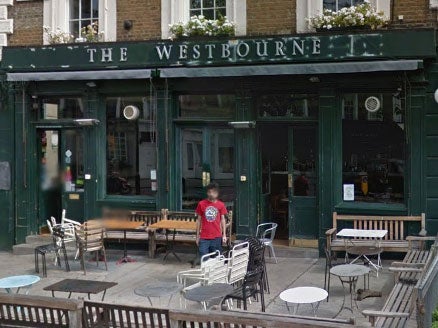When a woman sues because her injuries make her look like a self-harmer, we know we've got a problem
"The fact that I have been left with major scarring on my wrist, which to an unsympathetic observer might look like I am prone to self-harm, is very distressing for me."

Your support helps us to tell the story
From reproductive rights to climate change to Big Tech, The Independent is on the ground when the story is developing. Whether it's investigating the financials of Elon Musk's pro-Trump PAC or producing our latest documentary, 'The A Word', which shines a light on the American women fighting for reproductive rights, we know how important it is to parse out the facts from the messaging.
At such a critical moment in US history, we need reporters on the ground. Your donation allows us to keep sending journalists to speak to both sides of the story.
The Independent is trusted by Americans across the entire political spectrum. And unlike many other quality news outlets, we choose not to lock Americans out of our reporting and analysis with paywalls. We believe quality journalism should be available to everyone, paid for by those who can afford it.
Your support makes all the difference.Yesterday, it was reported that a woman is fighting for £4.2m after breaking her wrist by tripping on a rope in a beer garden.
The incident at Notting Hill's Westbourne boozer back in 2009 left Carmen Mazo with post-traumatic arthritis, which she says destroyed not only her social life but also her career, in which she would be earning £700 per day if still working today.
Regardless of whose side of the case/rope you’re on - and while no one wishes poor health on anyone - it is Mazo's statement in her action for damages that strikes a nerve for me.
Namely…
"The fact that I have been left with major scarring on my wrist, which to an unsympathetic observer might look like I am prone to self-harm, is very distressing for me."
It’s incredible that narrow-minded interviewers who assumed she might be “prone to self-harm” would pass her over.
Mazo was once a high-flying HR consultant.
Had someone walked into her office, in short sleeves and with self-injury scars, would she have deemed them unfit to work? Judged them? Been the ‘unsympathetic observer’ she speaks of? Found it ‘distressing’ on the other side of the fence? We don’t know – but we know that the phenomenon is common enough for her to lodge a claim about it.
Self-harm is neither a life sentence nor ‘crazy’; it is quite simply a symptom of complex emotions too raw to process, or a shield from fear, isolation, or abuse.
If someone who has recovered and moved on still lives with visible scars, this should be irrelevant compared to whether they're up to the job at hand or not.
Despite a history of self-harm spanning two decades, the shadows on my wrists and the keloids on my forearms categorically do not affect how I write as a journalist.
On the contrary, behaviours which would affect my work would, for example, include skipping meals, sleep deprivation, or compulsive social media checking – but because none of these 'look' unsavory, I'm spared the discriminative eye of the 'unsympathetic observer'.
This lack of understanding and our playing of ‘visual doctors’ to monitor what we deem digestible or not via aesthetics isn't helped by the ‘two steps forward, five steps back’ approach to the mainstream mental health debate.
With Self-Harm Awareness Day approaching on March 1st, I was in talks to appear on a popular TV show to provide expertise on the topic, though was later told they were unlikely to cover it as "the editor is really keen to keep the show upbeat".
Dumbing down of television aside, it irks me that mental health equates to 'downbeat', as we forever focus on the problem and rarely, if ever, on the solution.
If we stop relishing the Victorian freak show element of mental health, largely by giving a voice to the people ‘in the middle’ and not just the 70-stone man too big to leave his house or the girl who starved herself so much she disappeared, and find a practical, whole-nation approach to tackling it instead, it wouldn't be so taboo.
And it wouldn’t have to get a mention in someone’s court case, either.
Besides, we all know from personal experience that sometimes the hardest grafters might just be those covered in scars or tattoos - and the most judgmental can be those who go to church on Sunday.
Join our commenting forum
Join thought-provoking conversations, follow other Independent readers and see their replies
Comments